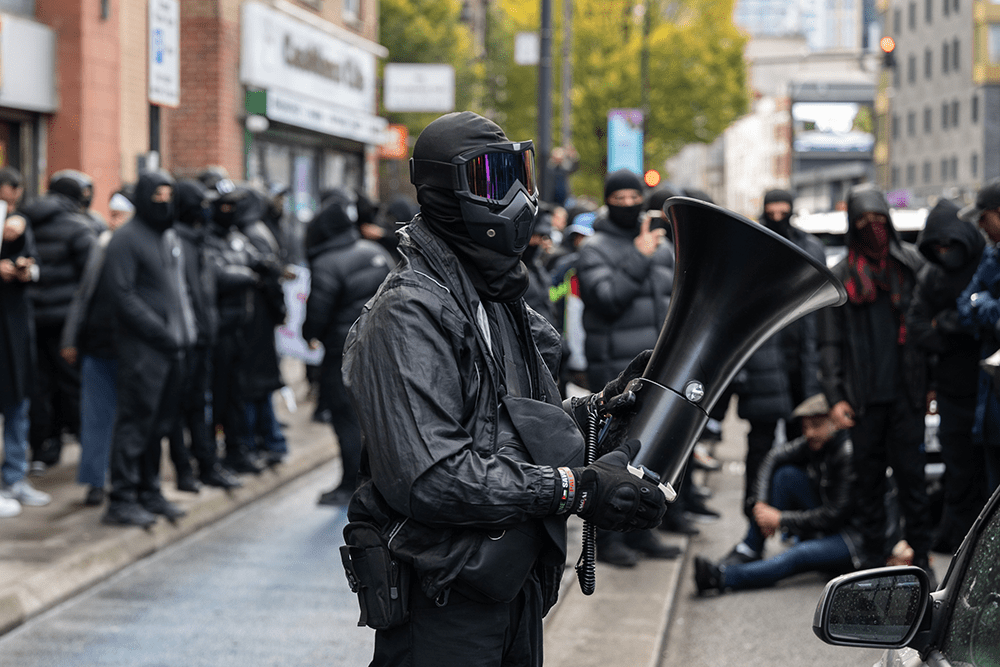The Nature of Love is a French-Canadian film about an academic who considers herself happily married but then encounters a builder and sparks fly. I’ve made it sound like one of those Confessions… films, or an airport novel, but it isn’t. It’s sly, sexy and smart and, even though it’s billed as a romantic comedy and skips along nicely, it also asks some important questions, such as: once a relationship becomes humdrum has it moved to a deeper plane? Or is that the lie we tell ourselves? To compensate?
Written and directed by Monia Chokri, the film stars Magalie Lépine Blondeau as Sophia who, like Glenn Powell’s character in Richard Linklater’s Hit Man, is a philosophy professor.
This is convenient as it allows characters to narrate on the subject in hand via their lectures in a way that wouldn’t work nearly as well if, say, they were employed in a fish factory (though I would like to see that). She lectures on, yes, the nature of love. ‘According to Plato,’ she might say, ‘love is inextricably linked to desire…’ But is it? Or can one exist without the other?
Sophia is, at the outset, happily if unexcitingly married to Xavier (Francis-William Rhéaume), also an academic. They are companionable and comfortable and have a solid social circle and a lovely house but the spark? No sign. It’s slipped away as they’ve slipped into separate bedrooms.
He’s a nice fella but the sort who fills the car with petrol the night before which actually strikes me as perfectly sensible, but there you are. The two have bought a cottage in the woods as a weekend home that’s in need of renovation so, with that full tank of petrol – well done, Xavier! – she drives there to meet the builder.
This is Sylvain (Pierre-Yves Cardinal; so rugged) and after he sucks his teeth and gives her the bad news – your plumbing is shot, your electrics are shot, you have carpenter ants – takes her for a beer to cheer her up. Next thing you know, they are tearing each other’s clothes off. Luckily, the chemistry between the two leads is electric. Even I understood why they couldn’t help themselves.
But where to from here? With most romances, going as far back as Shakespeare and Jane Austen, you don’t see a couple once they are together. You’re left with idealised versions but here Chokri gets down to the nitty-gritty. If this becomes a relationship will it work? Could love and desire perhaps not be inextricably linked? Can you have one without the other? Does Schopenhauer have something to say about this? (I think so but can’t remember what it was exactly.)
There are no significant events or outright jokes. Any comedy comes from the characters who arrive fully formed, like her brother, an artist who despises Damien Hirst: ‘Shitty art for people who hate art.’
We meet family from both sides. Her family is wealthy and well-educated while he comes from working-class manual labourers, wears bad shirts, mispronounces words, is a little bit racist, probably drives on empty. She must decide where love truly lies.
The film includes rom-com tropes but knowingly. Our old pal, the falling-in-love-montage, turns up but with irony. There’s also a scene involving much weeping, the sodden tissues becoming a mountain.
The director has an expert light touch and the performances are exquisite. Blondeau has a beautifully expressive face of the kind that makes you want her to be in every frame, while Cardinal brings vulnerability and also earnestness to a role that could have easily been a caricature.
Who will Sophia choose and why? Will a full tank of petrol win out? Or not?








Comments